Health
Jasmine herbs’ surprising benefits when added to health routines in the form of oil, in tea and more

Jasmine is full of intriguing health benefits, including potentially aiding weight loss and wound healing, among many others.
Jasmine is “a type of evergreen ornamental shrub with fragrant flowers, usually white flowers, and they are aromatic, meaning they have a strong aroma, very fragrant,” Jenna Volpe, a Texas-based registered dietitian and herbalist, told Fox News Digital in a phone call.
Jasmine can be found in tea, oil and in capsules, making it easy to incorporate into daily routines.
SAUNAS HAVE HEALTH BENEFITS, BUT OVERUSE IS LINKED TO DANGEROUS HEALTH RISKS
Different benefits may result when drinking jasmine tea versus using jasmine oil.
“I would say the essential oil is more for purifying the air or for topical use, [while] the tea is for taking internally — and they both can have many benefits,” Volpe said. “There’s been a lot of benefits shown for skin. To use it topically and then internally can also benefit the skin, but it also has more benefits beyond that.”
Jasmine tea is full of health benefits that you may find intriguing. (iStock)
When looking to add a new herb to your routine, health benefits can result from regular use.
“You would just want to make sure you’re getting enough of it and are being consistent,” said Volpe. “I think a lot of people are not consistent enough and probably not consuming it in the right therapeutic dose to get the benefits.”
Volpe also noted that keeping up with an overall healthy lifestyle to complement the use of a herb like jasmine is important in order to see benefits.
THE HEALTH BENEFITS OF MATCHA, PACKED WITH ANTIOXIDANTS, MAY BE WORTH INCORPORATING INTO YOUR DIET
Read below to learn more about the health benefits jasmine could bring.
- It’s full of antioxidants
- It may aid in weight loss
- It may help skin health and wound healing

Jasmine oil can be diluted and applied to the skin, or it can be placed in a diffuser — these are popular ways in which it is used. (iStock)
1. It’s full of antioxidants
Jasmine is full of antioxidants. It consists of plant-based compounds known as polyphenol, according to Healthline.
These compounds protect cells against free radical damage, according to the source.
“It’s a source of antioxidants, kind of like green tea. It’s actually paired a lot with green tea,” Volpe said.
CLICK HERE TO SIGN UP FOR OUR LIFESTYLE NEWSLETTER
There are several different types of jasmine tea that can provide antioxidants.
“I like organic, loose-leaf versions of the tea better than, say, a commercially made tea bag,” Volpe said.
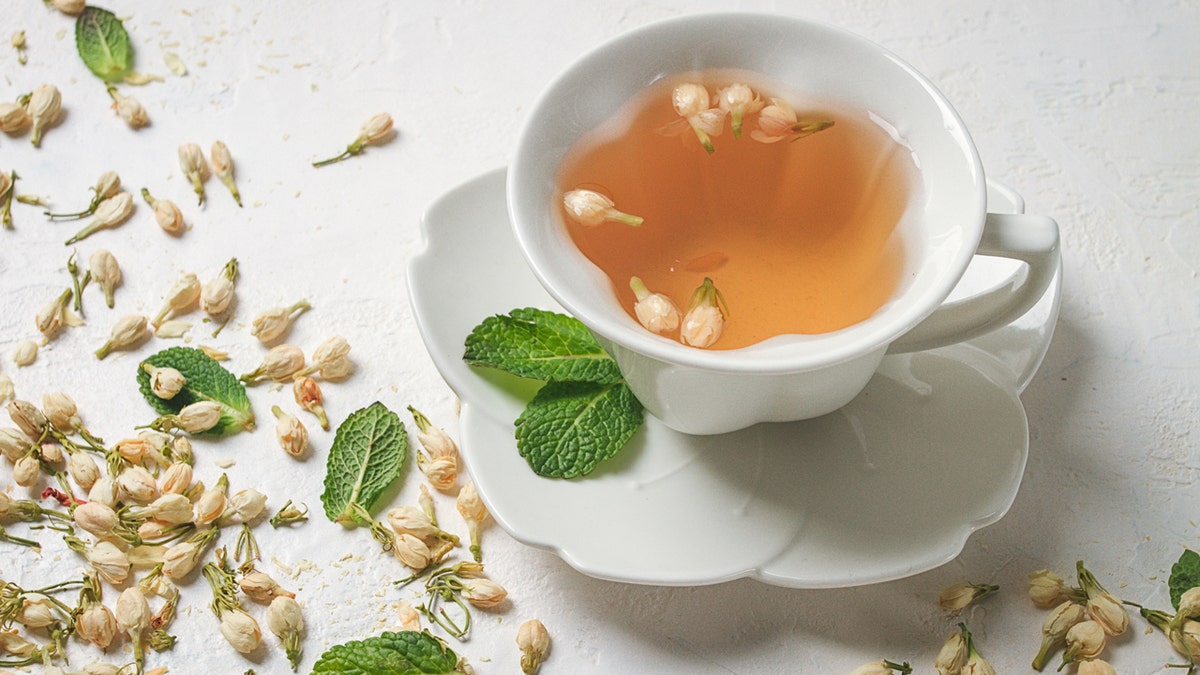
Jasmine tea is full of antioxidants. To see health benefits, it should be consumed on a regular basis. (iStock)
If you want those extra antioxidants but don’t want to drink tea, jasmine also comes in the form of capsules, which can be an alternative way to incorporate it into your everyday routine.
2. It may aid in weight loss
Jasmine could play a role in promoting weight loss when combined with an overall healthy lifestyle.
For more Lifestyle articles, visit www.foxnews.com/lifestyle
“A new study looked at cold-brew jasmine tea, and it was shown to reduce a bunch of comorbidities associated with metabolic syndrome, like weight gain and obesity, unhealthy cholesterol levels, insulin resistance and dysbiosis, which is like an imbalanced microbiome, and then inflammation,” said Volpe. “And so all of that has to do with altering the microbial profile in ways that would optimize our health.”
When incorporating anything new into your diet, it’s always a good idea to start slow to ensure you don’t have an adverse reaction.

Jasmine can be incorporated into a healthy lifestyle to potentially aid in weight loss. (iStock)
“I mean, there’s always the chance of an adverse reaction with any herb,” Volpe said. “Whether it’s an allergy, allergic reaction, something like that. There’s not a whole lot of research showing side effects [of jasmine]. … It’s a pretty benign, pretty safe herb.”
3. It may help skin health and wound healing
Jasmine has also been known for its benefits involving the skin, including wound healing, as well as treating ulcers and skin diseases.
“It has been clinically proven and used in folk medicine for treating ulcers, skin diseases and for wound healing,” Volpe explained. “I would say the benefits come from antioxidant and antimicrobial activity.”
If using jasmine for wound healing, such as a small cut or scratch, diluted jasmine oil should be used, according to Healthline.

Health
Woman 'still suffering' after being knocked out by a cauliflower while grocery shopping

A grocery shopper in the United Kingdom was reportedly knocked unconscious after a discounted cauliflower fell on her head.
Sammi Mai, a resident of Kingston-upon-Thames, England, told GB News that she was recently browsing a discount rack at a Waitrose grocery store in Bath when the vegetable hit the back of her head.
“Suddenly a really large and heavy item fell down on the top of my head, and hit my head,” the shopper recalled. “I fell and when I woke up, I was suffering [from a] concussion and was knocked out.”
Cauliflowers tend to weigh around two pounds, and Mai says the brassica fell between four and six feet before hitting her head.
MAN STUMBLES ACROSS GEM WORTH THOUSANDS HIDDEN IN DIRT: ‘IT’S LIKE NOTHING ELSE’
A woman says she was given a concussion by a cauliflower that fell on her head while grocery shopping. (iStock)
Mai later told the Sun that she is still experiencing a variety of symptoms – from neck pain to anxiety – and that the incident has had a damaging impact on her health. She said she is considering legal action against the chain.
“I was very unwell, and I’m still suffering and unable to work,” Mai claimed. “I don’t know how the cauliflower fell but they should not store heavy, roundish items like that on the top shelf.”
“The staff just put it back on the top shelf so they were not treating the incident seriously,” she added.
WOMAN LEFT WITH KIDNEY DAMAGE AFTER VISITING HAIR SALON

The incident happened at a Waitrose supermarket in Bath, England. (Mike Kemp/In Pictures via Getty Images)
Waitrose told Fox News Digital that they were aware of the situation and that the shopper received medical assistance at the time.
“Our customer was seen immediately by a trained first-aider at the time of the accident, and we are sorry to hear she is unwell,” a company spokesperson said. “We take customer safety incredibly seriously and have thoroughly investigated this case – but will consider any new information she wishes to share with us.”

An employee stacks shelves at a Waitrose supermarket in London on Dec. 29, 2021.
For more Health articles, visit foxnews.com/health
Fox News medical contributor Dr. Marc Siegel told Fox News Digital that, though a significant brain injury is unlikely to have resulted from the incident, “anything is possible.”
“A cauliflower is soft, and even falling four feet, it is unlikely that it would cause significant head trauma,” Siegel explained. “Though again, anything is possible.”
CLICK HERE TO SIGN UP FOR OUR HEALTH NEWSLETTER

Dr. Marc Siegel encourages anyone suffering from a concussion to see a physician. (iStock)
The physician also noted that neck pain and nausea are all symptoms of a blow to the head, even if a concussion was unlikely in the incident’s circumstances. Siegel advised anyone suffering from a concussion to seek medical help.
“If you have headache, visual changes, dizziness, nausea, confusion, a concussion is possible following a blow to the head,” he explained. “See a physician: if the symptoms are significant enough, it will require a CT or MRI.”
“I would also decrease activity while having these symptoms.”
Health
Life expectancy in humans not likely to increase much more, study suggests
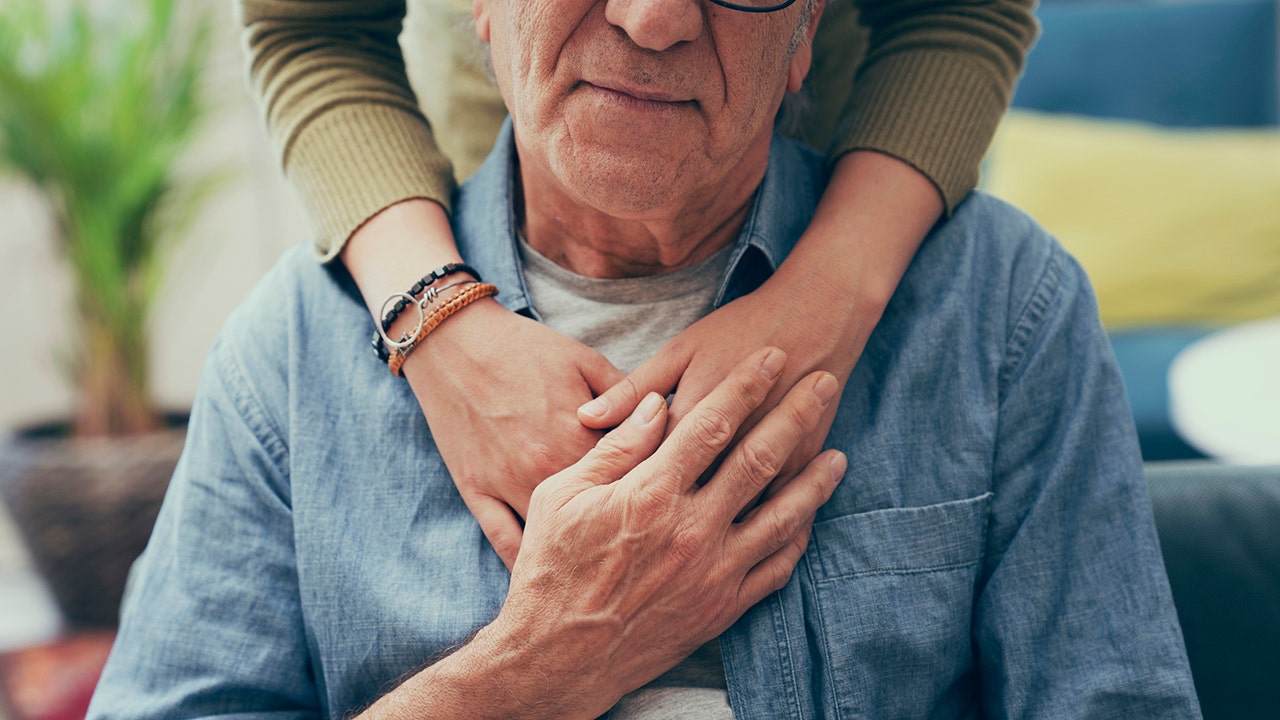
Human life expectancy has potentially been pushed to the max, new research suggests.
The recent increase in people’s longevity appears to be slowing down despite new developments in medicine, according to a study published in the journal Nature Aging.
During the 20th century, human life expectancy at birth rose by about 30 years in high-income nations, the study noted, driven by advancements in public health.
ULTRA-PROCESSED FOODS MAKE UP 60% OF AMERICA’S DIET, WHO’S AT BIGGEST RISK
Researchers from the University of Illinois Chicago (UIC) analyzed the national vital statistics of the longest-living populations in Australia, France, Italy, Japan, South Korea, Spain, Sweden and Switzerland, as well as Hong Kong and the United States, from 1990 to 2019.
The expectation that human life expectancy will surpass 100 years old is most likely untrue, the study revealed. (iStock)
Since 1990, the average life span has only risen 6-½ years in the countries in the study, which casts doubt on expectations that human life expectancy would exceed 100 years in people born today.
The researchers concluded that overall life expectancy improvements have slowed down, and that radical human life extension is “implausible in this century” unless the biological aging process can be “markedly slowed.”
‘Diminishing gains’
Study co-author S. Jay Olshansky, PhD, professor of epidemiology and biostatistics at UIC, shared his reaction in a conversation with Fox News Digital.
“The power of medicine to extend human life is extraordinary.”
“We’re demonstrating what actually happened in all of these populations in the last three decades,” he wrote in an email. “The decline in improvement was particularly pronounced in the United States.”
“As long as aging is unchanged, life extension through disease reduction must yield diminishing gains — that’s the overall conclusion in this paper.”

“The period of rapid increases in life expectancy is over,” the researchers concluded. (iStock)
The researcher also suggested that most people past age 60 are living on “manufactured time,” meaning they’re surviving on new medical technology.
“We should all be grateful that these life-extending technologies work, because without them, we would be living much shorter lives,” he said.
TO REDUCE DEMENTIA RISK, SENIORS SHOULD TAKE UP THIS OUTDOOR ACTIVITY, STUDY SUGGESTS
Olshansky explained that humans were not made to live as long as they do now, as the natural life expectancy for humans is 30 to 60 years.
“This means the vast majority of the population that now lives past age 60 is living on survival time that was manufactured by medicine,” he said. “The power of medicine to extend human life is extraordinary.”

One of the study authors (not pictured) suggested that humans are surviving on time manufactured by modern medicine. (iStock)
Medical interventions for disease reduction could be considered “temporary” bandages, according to Olshansky.
“Living longer means we’re exposing ourselves to the currently immutable force of biological aging – which has already become the dominant risk factor for death in high-income countries,” he said.
For more Health articles, visit foxnews.com/health
More than 30 years ago, researchers predicted that medicine would advance at “breakneck speed,” but that life expectancy wouldn’t follow, Olshansky noted.
“The prediction has come true and … the period of rapid increases in life expectancy is over,” he said.

Aging is tied to inflammation, one doctor noted, which can be treated with available medications. (iStock)
Dr. Marc Siegel, senior medical analyst for Fox News and clinical professor of medicine at NYU Langone Medical Center, who was not involved in the study, shared his opinion of the findings.
“I disagree with this because aging is tied to inflammation,” he told Fox News Digital.
“Current treatments (metformin, Lipitor, Ozempic, etc.) and diet strategies, as well as newer treatments in the works, may decrease oxidative stress, inflammation and insulin resistance, all of which contribute to cellular longevity,” the doctor added.
‘Control what we can control’
The time has come for people to focus on healthspan extension, not lifespan extension, according to Olshansky.
“This paper represents the strongest empirical evidence supporting the need to slow aging, because the [bandages] we’re now creating may produce an expansion of our carespan – especially if they make us live longer and deeper into the aging red zone, where frailty and disability dominate.”

“We now have the rationale for why healthspan extension should be our primary goal going forward,” a researcher (not pictured) told Fox News Digital. (iStock)
Olshansky advised the public to “control what we can control” and to avoid activities that shorten lifespan, such as unhealthy eating, smoking and substance abuse.
CLICK HERE TO SIGN UP FOR OUR HEALTH NEWSLETTER
The scientist also encouraged people to take advantage of access to medicine by visiting their doctor and taking prescribed medications.
“Take advantage of the social determinants of health — education and access to medical care — because these interventions work to increase the chances of living longer and healthier,” he said.
“And then focus on extending the most precious commodity on earth — healthy life.”
Health
Fauci says West Nile Virus was a ‘harrowing’ experience: ‘Afraid I would never recover’
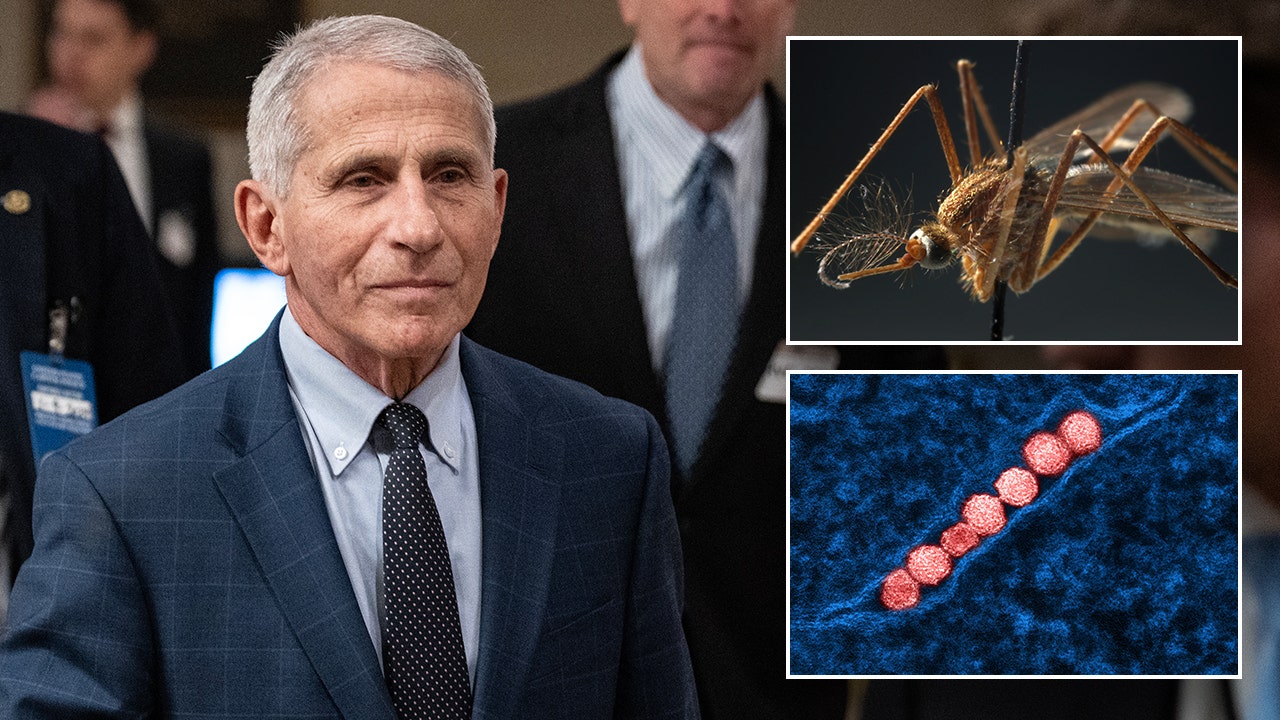
Dr. Anthony Fauci, the public face of the U.S. coronavirus pandemic response, is speaking out about his “terrifying” bout with West Nile virus (WNV) in August.
In an op-ed in The New York Times on Monday, the former top infectious-disease official, now 83, wrote that he believes he caught the virus from a mosquito bite while outdoors at his Washington home.
He chalked up his weakness and fatigue to lingering COVID symptoms at first, until he “became delirious and incoherent with a temperature of 103 degrees,” leading to a six-day hospitalization.
ANTHONY FAUCI’S WEST NILE VIRUS DIAGNOSIS: WHAT TO KNOW ABOUT THE MOSQUITO-BORNE DISEASE
“After I spent more than 50 years chasing and fighting viruses, one fought back and nearly took me down,” Fauci wrote.
Former NIAID Director Dr. Anthony Fauci was hospitalized in August with the West Nile virus. (Drew Angerer/Getty Images, main, E. Jason Wambsgans/Chicago Tribune/Tribune News Service via Getty Images, top right, NIH-NIAID/IMAGE POINT FR/BSIP/Universal Images Group via Getty Images, bottom right.)
“There is no treatment for West Nile virus disease, and I was left to deal with its toll on my body.”
He described the experience as “terrifying” and “harrowing.”
“A very scary part of the ordeal was the effect on my cognition,” Fauci said.
WEST NILE DEATH REPORTED IN TEXAS AS HEALTH OFFICIALS WARN RESIDENTS TO SAFEGUARD AGAINST MOSQUITOES
“I was disoriented, unable to remember certain words, asking questions of my family that I should have known answers to.”
“I was afraid that I would never recover and return to normal.”
Fauci has since recovered, stating that the cognitive symptoms have subsided and he is now walking several miles each day.
“I was afraid that I would never recover and return to normal.”
“I tell my story because West Nile virus is a disease that, for many people, can have devastating and permanent consequences,” he wrote.
In the op-ed, Fauci called for more resources to address the threat of West Nile, which can have “devastating and permanent consequences.”
What to know about West Nile virus
As of Oct. 8, there have been 976 West Nile virus cases in the U.S. across 46 states, according to the Centers for Disease Control and Prevention (CDC).
Among those, 684 cases were neuroinvasive (severe).
Since the West Nile virus first entered the U.S. in 1999, it has become the leading cause of mosquito-borne disease in the country.
IN A POTENTIAL OUTBREAK, IS BIRD FLU TESTING AVAILABLE FOR HUMANS? WHAT TO KNOW
In most cases, the West Nile virus — a flavivirus in the same family as yellow fever, dengue fever, Japanese encephalitis and the Zika virus — is spread when Culex mosquitoes bite infected birds and then bite people and other animals, per the CDC’s website.

“I tell my story because West Nile virus is a disease that, for many people, can have devastating and permanent consequences,” Fauci wrote. (CBS)
The virus is not transmitted through eating or handling infected animals or birds — nor is it spread through physical contact, coughing or sneezing.
A vast majority — around 80% — of the people who contract the virus will not experience any symptoms, the CDC states on its website.
IN A POTENTIAL OUTBREAK, IS BIRD FLU TESTING AVAILABLE FOR HUMANS? WHAT TO KNOW
“It causes a rash and other symptoms, including swollen lymph nodes, which other viruses in its class do not exhibit,” Dr. Marc Siegel, senior medical analyst for Fox News and clinical professor of medicine at NYU Langone Medical Center, previously told Fox News Digital.
“It only affects the nervous system 1% of the time and is rarely fatal.”
Around one in five people will develop febrile illness, which is marked by a fever along with body aches, headache, joint pain, diarrhea, rash and/or vomiting.
The virus only affects the nervous system 1% of the time and is rarely fatal.
These symptoms usually go away on their own, but some people may have lingering weakness and fatigue months after infection.
In rare cases — about one in every 150 infected people — the virus can lead to serious conditions affecting the nervous system, such as encephalitis (inflammation of the brain) or meningitis (inflammation of the membranes that surround the brain and spinal cord), the CDC states on its website.
Those who develop serious illness may experience headache, stiff neck, high fever, disorientation, vision loss, muscle weakness, convulsions, tremors, coma or paralysis, which occur when there is viral infection of the central nervous system.
Among people who have this invasive form of the illness, around 10% will die.
It affects the nervous system 1% of the time and is rarely fatal, statistics show.
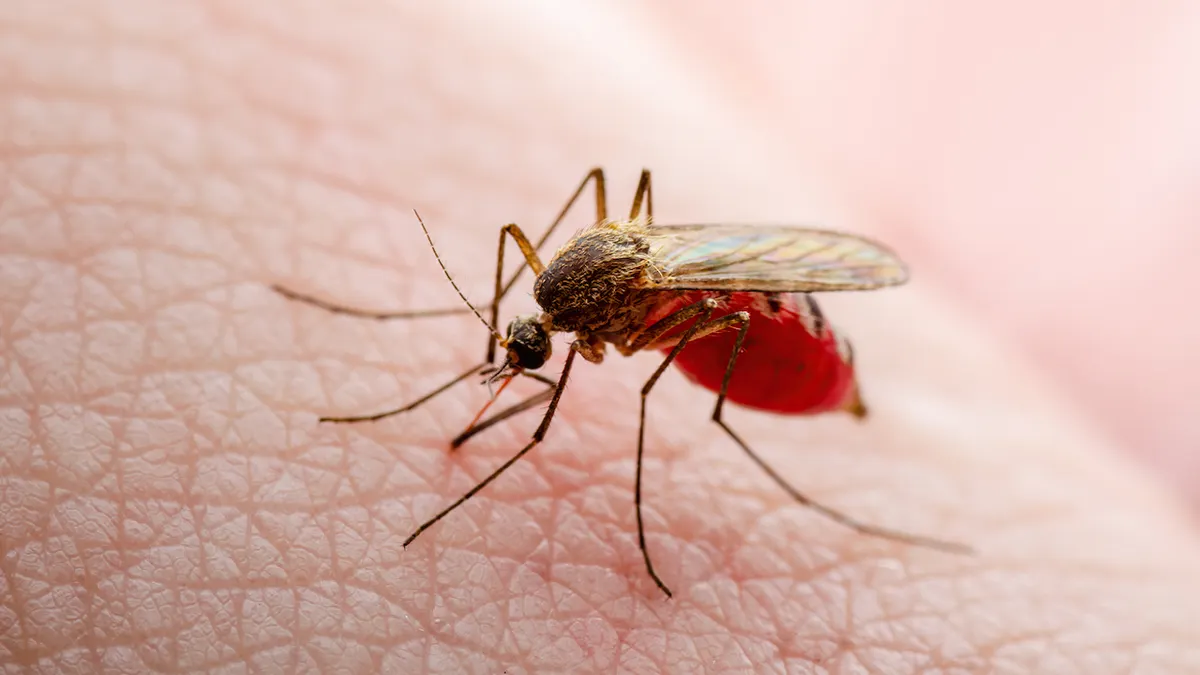
Since the West Nile virus first entered the U.S. in 1999, it has become the leading cause of mosquito-borne disease in the country. (iStock)
While anyone can potentially develop severe illness, the highest-risk groups include those over 60 years of age, people who have had organ transplants and those with diabetes, cancer, high blood pressure, kidney disease, immune disorders and other certain medical conditions.
“The virus’ effects can be quite serious in the elderly,” Siegel noted.
Diagnosis and treatment
Those who think they might have been infected with WNV should be assessed by a health care provider, the CDC states.
Diagnosis of the infection can be made based on evaluation of symptoms, recent exposure to mosquitoes and testing of blood or spinal fluid.
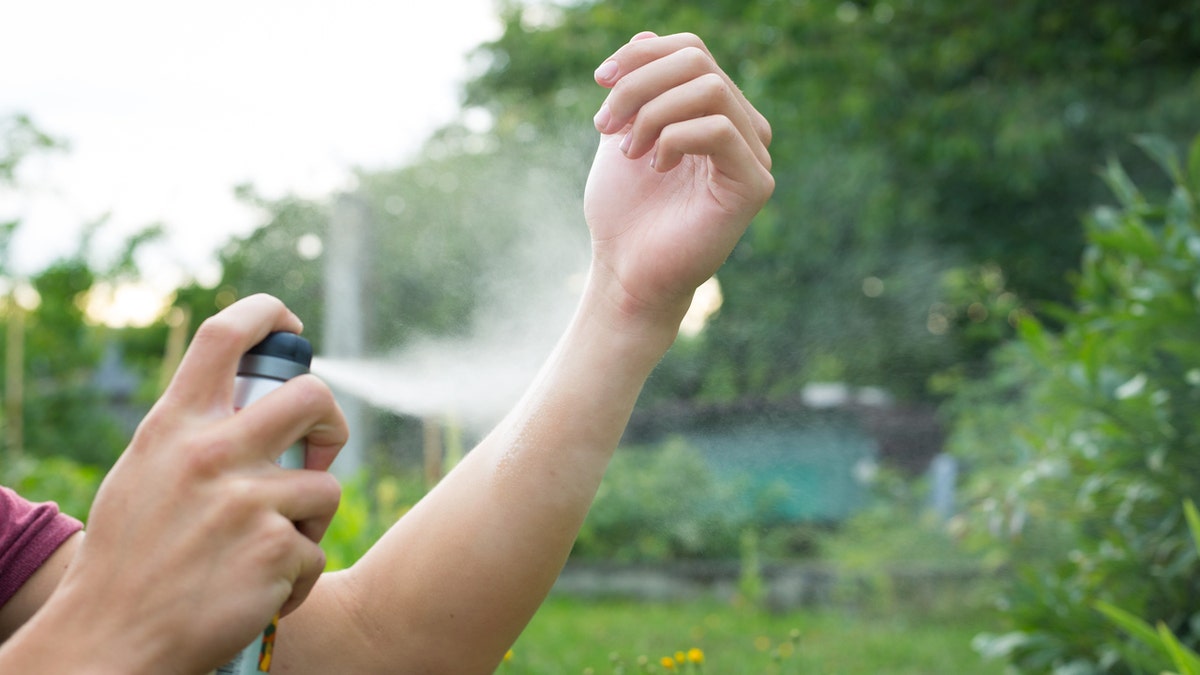
The most effective means of prevention is to protect against mosquito bites by using insect repellent, wearing long-sleeved shirts and pants, and taking steps to control exposure to mosquitoes. (iStock)
Health care providers will typically recommend treating symptoms with over-the-counter pain medications and getting plenty of rest and fluids.
Those who experience severe illness may need to be hospitalized for supportive care.
Preventing the virus
There is currently no vaccine for West Nile virus.
“The virus can be contained through public health measures including more insect repellent with DEET, longer sleeves and less stagnant water in our backyards,” Siegel said.
CLICK HERE TO SIGN UP FOR OUR HEALTH NEWSLETTER
Trying to kill adult mosquitoes by spreading too much insecticide can be problematic, the doctor warned.
“Animals, people with asthma and insects that would otherwise kill the mosquitoes are affected.”
The most effective means of prevention is to protect against mosquito bites, the CDC confirmed.
For more Health articles, visit www.foxnews/health
The agency’s recommendations include using insect repellent, wearing long-sleeved shirts and pants, and taking steps to control exposure to mosquitoes — particularly at dawn and dusk.
Eliminating any standing water outdoors can help prevent mosquitoes from breeding.
-
/cdn.vox-cdn.com/uploads/chorus_asset/file/25439572/VRG_TEC_Textless.jpg)
/cdn.vox-cdn.com/uploads/chorus_asset/file/25439572/VRG_TEC_Textless.jpg) Technology1 week ago
Technology1 week agoCharter will offer Peacock for free with some cable subscriptions next year
-

 World6 days ago
World6 days agoUkrainian stronghold Vuhledar falls to Russian offensive after two years of bombardment
-

 World7 days ago
World7 days agoWikiLeaks’ Julian Assange says he pleaded ‘guilty to journalism’ in order to be freed
-

 Technology6 days ago
Technology6 days agoBeware of fraudsters posing as government officials trying to steal your cash
-

 Health4 days ago
Health4 days agoHealth, happiness and helping others are vital parts of free and responsible society, Founding Fathers taught
-

 Virginia1 week ago
Virginia1 week agoStatus for Daniels and Green still uncertain for this week against Virginia Tech; Reuben done for season
-

 Sports5 days ago
Sports5 days agoFreddie Freeman says his ankle sprain is worst injury he's ever tried to play through
-

 News4 days ago
News4 days agoLebanon says 50 medics killed in past three days as Israel extends its bombardment
















